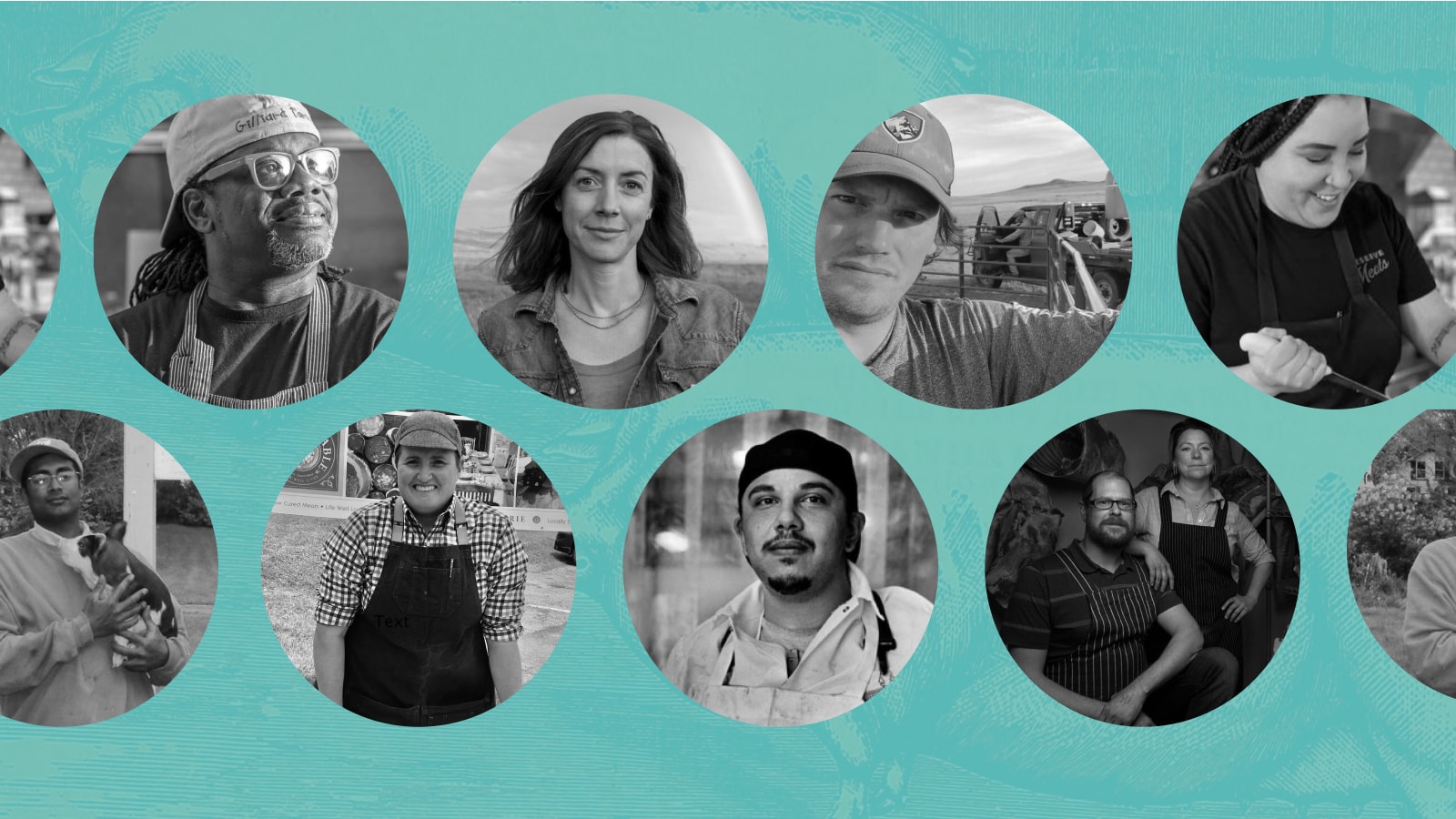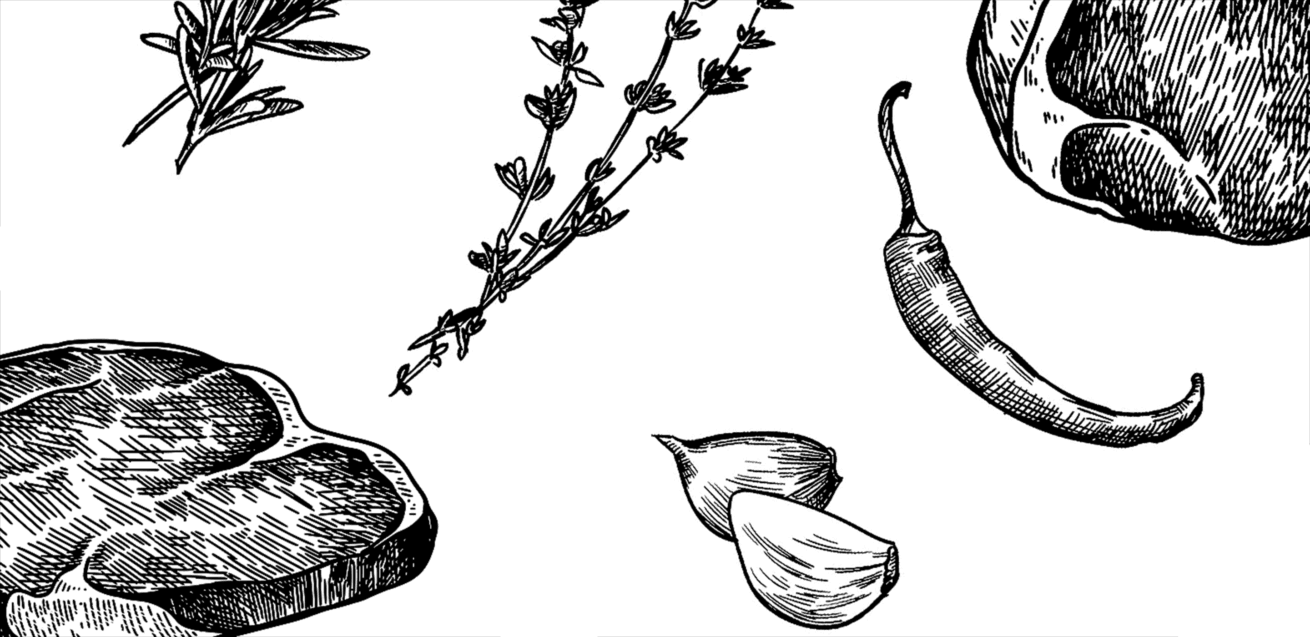Good Meat BreakdownGood Meat® Snapshots
Tanya Harding


Tanya Harding’s journey with ethical meat eating began in high school, when questions about animal welfare sparked a lifelong exploration of how food is raised and sourced. A college meat processing class and a hands-on butchery experience in Portland transformed her from a curious consumer into an intentional, whole-animal cook. For Tanya, eating meat means honoring the life behind it; choosing local, humane sources and using every part with care. She’s passionate about helping others find value in sourcing thoughtfully, cooking creatively, and learning traditional food skills. Her story is a reminder that how we eat shapes our health, our environment, and our connection to the world around us.
Where do you live in the world and share a little bit about what you love to do.
I live just outside Portland, Oregon, in the suburb of Beaverton. By day, I’m an intellectual property attorney. Outside of work, I’m a passionate home cook, a backyard food grower, and a volunteer with a local cat rescue nonprofit. I’ve also been a long-time follower of the Good Meat Project. I see myself as both a consumer and a very part-time producer of meat—and my commitment to sourcing food ethically is deeply rooted in my personal values and lived experiences.
I have been interested in production of my own food since high school, when I had to figure out whether or not I was going to continue to eat meat, because people were suggesting I shouldn't.
What was the transformational moment for you?
My relationship with meat started shifting in high school. I began thinking more seriously about the ethics of eating animals, which led me down a path of learning where my food came from and how it was produced. Later, while studying agriculture and plant biology at Rutgers, I enrolled in a class called Meats and Meats Processing. It was the first time I’d ever witnessed an animal being slaughtered. That moment was life-changing. I was probably 20. I had never seen an animal die to produce food for me. I remember thinking: if an animal is going to die to sustain me, I want to make sure no part of it goes to waste. That became a guiding principle for me.
Years later, I took a class with Camas Davis, founder of the Portland Meat Collective and the Good Meat Project. Listening to her share her journey—from vegetarianism back to meat through a lens of care and responsibility—was the final spark I needed. Listening to Camas’ story that very first time, and then processing locally raised and humanely raised pork, and then sitting down as a group to eat it in a single afternoon was the moment. After the class, I walked up to Camas and said, “I believe very deeply in what you're doing here and I want to help support it moving forward.” And that was a real change for me.
After that, I started buying meat by the quarter and half from local farmers, and I began learning how to use every part of the animal—from bones and organs to cuts I’d never heard of.
What does Good Meat® mean to you?
For me, “good meat” comes from animals that are humanely raised—ideally on pasture—close to home, and harvested with care. It also means using the whole animal and wasting as little as possible. “Good meat” is never about convenience. It’s about respect, intention, and connection. If an animal gives its life for me, the least I can do is honor that life by cooking and eating with purpose.
One of my favorite discoveries has been beef heart bolognese. I know it sounds intense, but it’s incredibly delicious—super rich and flavorful. My husband was not amazingly thrilled with the idea of organ meats but one night I made it for dinner and didn't tell him, I just said it was beef bolognese. My husband was skeptical until he tried it and his comment was, “this is the most amazing beef flavor I have ever had in my life.” Now he asks for it regularly. I also cure my own bacon, make bone broth, preserve what I grow in my garden, and smoke meats at home. There’s something deeply satisfying about participating in the full cycle of food.
From my standpoint, I love educating myself on how to use the parts of the animals that I was not familiar with when I was growing up. Chicken feedstock turns out to be absolutely wonderful and I love it and use it for all sorts of things. I make stock with all of the bones from the animals that are harvested for us. I buy quarter and half animals from local farmers and ranchers, and keep them in my freezers. My hope is that I'm always buying meat that was grown relatively close to me. I would like my chickens, pork and beef to have come from somewhere close to me, not shipped from 3,000 miles away, heaven forbid. I saw beef sausages from Australia in a grocery store recently, and I'm like, why in the world?
Why is it so important to you?
I think in part because food is an absolutely fundamental aspect of life. Everyone must eat and it's an impact that we have on the world that we will always have as humans, we will always have some sort of impact on the world. Whatever we eat, however it's produced, has an impact. I have always been focused on agriculture. It has always been my aim for a career. Moreso when I was a kid, because my parents both planted gardens and we had lots of houseplants. My formal study, my undergraduate degree is in plant biology and I was going into genetic engineering in agriculture. So, where we get food, how we produce food and what impact it has on the world around us has always been a focus.
Buying chicken thighs on a piece of white styrofoam wrapped in plastic at the grocery store was something we'd certainly bought plenty of when I was a kid. Times haven’t changed that much, especially looking at what we are currently doing with agriculture is astonishing. I mean, there's so many places where agriculture contacts the human world and vice versa. I would rather not have to give up meat. We are omnivores, we evolved as omnivores, so meat in our diet is important to us, so I would like to encourage the system to go back to more locally produced meat. Smaller production, not mega-aggregated farms are better for the environment, better for us.
What do you wish consumers knew about finding, buying and eating Good Meat® products?
I understand that locally raised meat can be expensive, but I also believe it delivers more value—ethically, nutritionally, and flavor-wise. For a lot of people, the challenge is access and education. I try not to preach, but I do think that with some planning—like buying in bulk or splitting shares with friends—”good meat” can be more accessible than many people realize.
I wish consumers knew more about buying meat in bulk. I buy a whole cow every year from local farmers. One of the both challenges and pleasures of buying a quarter animal, or a half animal, or a whole animal is you do get all of the cuts. And you have the option, if you're working with a butcher, to have all the wonderful steaks, but if you’re not really adventurous, you can have the rest of the animal which can technically be ground up as hamburger. But to me, it's so much more fun to learn how to cook, to slow braise, pig head soup and make osso buco and dishes like that. You can make large batches of beef heart bolognese, for example, and keep it in the freezer so you’ll have quick and delicious meals. And if you don’t have the freezer space, you can always pressure can sauces, bone broths and cure meats to enjoy throughout the year.
In the end, I care about this because food is powerful. What we eat, and how it’s produced, impacts everything—our health, the environment, our communities. For me, “good meat” isn’t just about taste. It’s about responsibility, relationships, and living in alignment with my values.
Good Meat® Snapshots
Popular Links

Let's do some good!
Sign up for our newsletter. We’ll keep you informed and inspired with monthly updates.